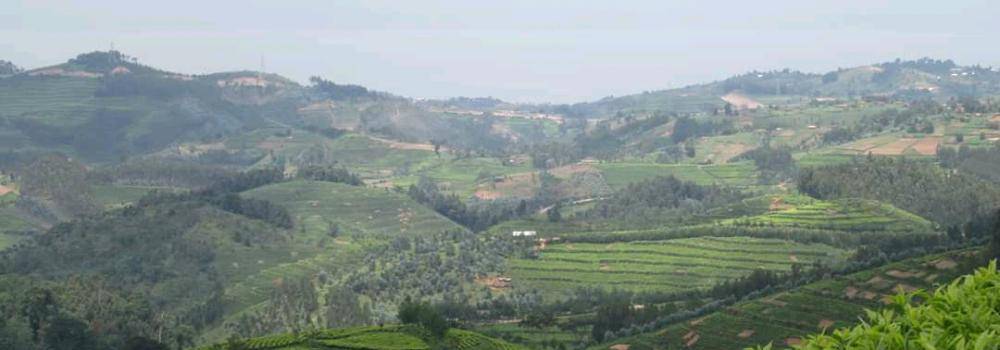
Overview
Contributed by Fabien Muhirwa, Assistant Lecturer in the Department of Natural Resources and Environmental Management, Protestant Institute of Arts and Social Sciences
Rwanda has integrated environmental education among its strategies for national sustainable development, such as through its Environmental Education for Sustainable Development (EESD) Strategy which aims to promote public awareness about environmental management and sustainable development in Rwanda. The Rwanda Education Board has also embedded environmental topics in every subject taught in K-12 curricula to foster eco-friendly attitudes and environmental literacy in all students. Conservation NGOs also play a crucial role supporting environmental education in Rwanda through community engagement and supporting young scientists working in conservation research, among other activities.
Policy & Practice
National Policy
Rwanda does not have a specific national policy for environmental education, however the National Environment and Climate Change Policy (updated in 2018) acknowledges a need for environmental education to keep the relevance of environmental awareness in the Rwandan community. The Rwanda Environmental Management Agency (REMA) was established in 2005 under the Ministry of Environment, and oversees environmental education at the national level through its Department of Environment Education and Mainstreaming. Furthermore, REMA launched the Rwanda Environmental Education for Sustainable Development Strategy (2010-2015) to guide national development in the context of sustainability.
EE in K-12 Education
In 2016, the Government of Rwanda, through the Ministry of Education, rolled out a new competence-based curriculum for sustainable development for pre-primary through upper secondary education. This approach focuses on learners gaining basic knowledge from the natural sciences, social sciences, and humanities. In this curriculum, Environment and Sustainability is included as a cross-cutting issue and integrated into multiple subjects including social studies, biology, language courses, economics, music, and more. Integration of this cross-cutting issue “advocates for the need to balance economic growth, society well-being and ecological systems” and aims to give students “basic knowledge from the natural sciences, social sciences, and humanities to understand to interpret principles of sustainability.” The curriculum also helps K-12 students to innovate green projects in their boarding schools such as (green gardens, fruit plantations, mushroom powder, paints, liquid soap and woven baskets.
Furthermore, REMA runs the Green School program which aims to build young Rwandans as stewards of their natural environment. The agency also began an initiative to deliver strategic, intensive training for schools based on their academic domains (e.g. sciences, social studies, polytechnics, etc.) to help students develop environmental skills needed for their specific domains.
Professional Development
There are several EE professional development opportunities in Rwanda. Internationally, Rwanda is a member of the Mainstreaming Environment and Sustainability in African Universities (MESA) network. This network supports partner universities to provide professional teaching, research, and community engagement and management in environmental studies. At the national level, many private and public universities help develop professional skills in EE in their programs. For instance, the Protestant Institute of Arts and Social Sciences organizes an annual training for groups of students and the surrounding community on environmental topics. NGOs also contribute a lot in the development of Rwandan environmental professionals and educators. For example, the Dian Fossey Gorilla Fund International provides training for aspiring young scientists and communities adjacent to the Volcanoes National Park in four northern districts of the country. Rwanda Environment Awareness Services Organization Network is another NGO working to promote environmental awareness in Rwanda’s K-12 schools and higher education institutions, particularly by establishing student environmental clubs.
Leadership
EE in National Government
The Rwanda Environmental Management Agency (REMA) is governmental institution in charge of environmental education at the national level, and provides technical support for higher education institutions and the K-12 Rwanda Education Board to develop curricula that incorporate environmental topics.
National EE Campaigns and Funding
Currently there is no special established for funding environmental education, however FONERWA (also known as the Rwanda Green Fund) was established as a national fund to support environment and climate change projects and has had a positive impact on environmental education in Rwanda.
Some NGOs, such as the Dian Fossey Gorilla Fund International, also play a crucial role supporting environmental education in Rwanda through community engagement and supporting young scientists working in conservation research, among other activities.